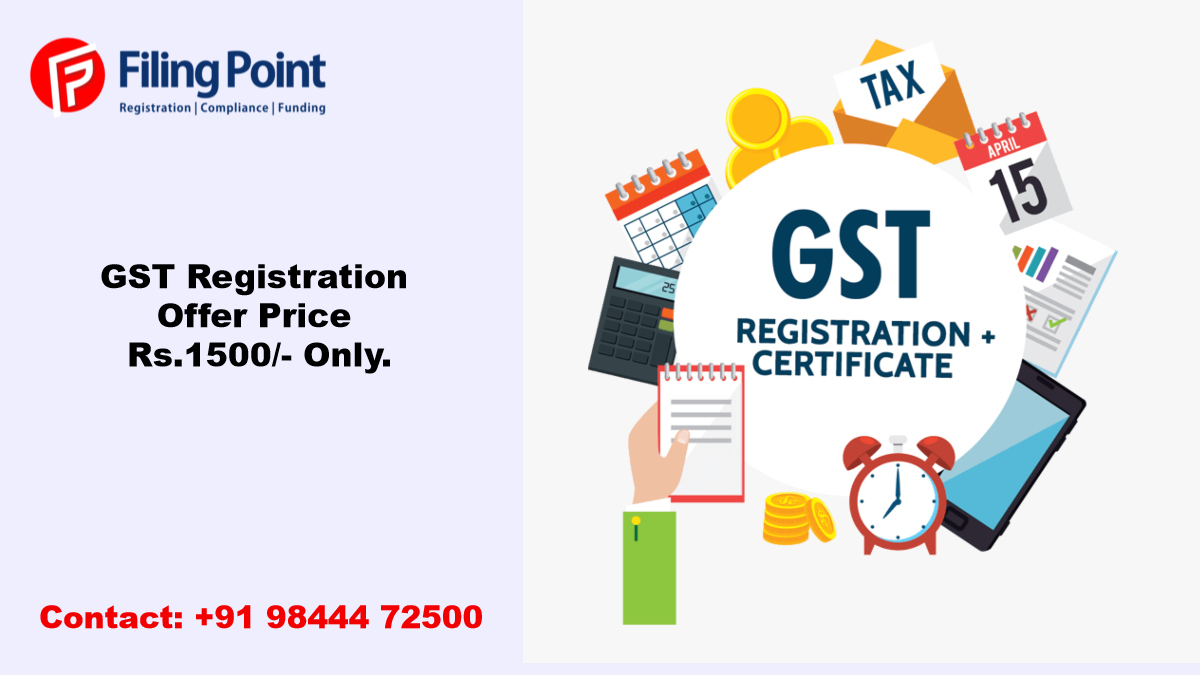How to Locate the Best GST Registration Services in Singapore Promptly
How to Locate the Best GST Registration Services in Singapore Promptly
Blog Article
From Start to Finish: The Ultimate Roadmap to GST Registration for Businesses Seeking Financial Stability
Navigating the complexities of Product and Provider Tax (GST) enrollment is an important action for businesses making every effort for financial security. From comprehending the basic principles of GST to abiding by post-registration standards, the procedure can appear discouraging initially glimpse. Damaging down the roadmap into convenient steps can streamline the enrollment journey for organizations looking to improve their financial standing. Allow's discover the essential components that make up this supreme roadmap and find just how each stage adds to laying a solid structure for financial success.
Comprehending GST Fundamentals
Looking into the essential concepts of Goods and Services Tax Obligation (GST) is vital for acquiring an extensive understanding of its implications on companies and the economic climate. GST is a value-added tax obligation levied on most items and services for residential consumption. It has changed several indirect tax obligations that existed in the pre-GST age, streamlining the tax framework and boosting simplicity of doing company in India. Under the GST system, both solutions and goods are strained at a specific rate, which is identified based on their category. Companies are required to sign up for GST if their yearly turnover surpasses the threshold restriction established by the federal government. Input Tax Credit Report (ITC) is a considerable attribute of GST, permitting services to assert credit scores for tax obligations paid on inputs, decreasing the total tax obligation worry. Comprehending the fundamentals of GST is vital for companies to follow tax policies, handle their finances efficiently, and contribute to the nation's financial development by getting involved in a transparent tax system.
Eligibility Standards for Enrollment
To register for GST, businesses have to meet certain eligibility criteria established by the federal government. The main eligibility demand is that any organization associated with the supply of products or solutions with an annual accumulation turnover above the threshold limit set by the authorities should register for GST. As of the existing guidelines, the threshold limitation for GST enrollment is a yearly aggregate turn over of 40 lakhs for services operating within a state, with the exception of unique classification states where the limit is 20 lakhs. Additionally, particular businesses are needed to sign up for GST regardless of their turn over, such as interstate vendors, casual taxed persons, and services liable to pay tax obligation under the reverse charge device. It is essential for businesses to extensively examine their turn over and purchase kinds to identify their GST registration commitments accurately. Failing to sign up for GST when eligible can result in penalties and legal repercussions, making it essential for businesses to comply with the specified eligibility standards.
Documents Needed for Registration
Having satisfied the qualification standards for GST registration, businesses must currently guarantee they have the requisite files in area to continue with the enrollment procedure efficiently. The records needed for GST registration commonly include proof of business constitution, such as collaboration deed, enrollment certificate, or incorporation certification for various kinds of businesses. In addition, organizations need to provide records developing the primary location of business, such as official source a rental agreement or power bill.
Step-by-Step Enrollment Process
Commencing the GST enrollment procedure includes a series of structured steps to ensure a compliant and smooth registration for businesses. The initial step is to check out the GST site and fill out the registration form with exact information of business entity. Following this, the applicant gets a Momentary Referral Number (TRN) which is utilized to return to the application procedure if it's not finished in one go.
Following, all needed records as per the checklist supplied by the GST portal demand to be published. These files typically include proof of business identification, address and registration evidence of promoters, monetary declarations, and company entity's PAN card.

Post-Registration Conformity Guidelines

Conclusion
To conclude, companies looking for economic security should recognize the basics of GST, fulfill qualification standards, collect needed papers, adhere to the step-by-step enrollment procedure, and abide by post-registration guidelines look at here now - Best GST registration services in Singapore. By sticking to these steps, companies can ensure conformity with tax regulations and maintain economic security in the future
Furthermore, particular businesses are required to sign up for GST regardless of their turnover, such as interstate providers, laid-back taxable persons, and services responsible to pay tax obligation under the reverse cost device.Having satisfied the eligibility criteria for GST registration, services should now ensure they have the requisite files in area to proceed with the registration process efficiently. The records needed for GST registration usually include evidence of service constitution, such as collaboration action, registration certification, or incorporation certificate for different types of organizations. In addition, companies require to give files establishing the primary place of business, such as a rental agreement or electrical energy bill.Commencing the GST registration procedure entails a collection of structured actions to make sure a certified and seamless registration for businesses.
Report this page